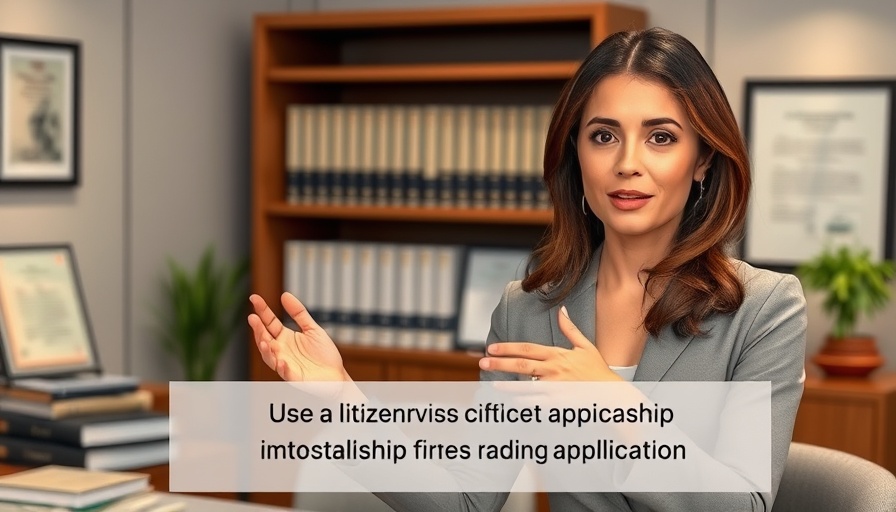
USCIS Shifts Towards Law Enforcement: A Game Changer for Immigration
The latest developments from USCIS signal a significant transformation in how immigration laws are enforced in the United States. As discussed by immigration attorney Latoya McBean Pompe in a recent live broadcast, USCIS is evolving into a more aggressive enforcement entity. This shift highlights a growing intersection between immigration processes and law enforcement, raising vital concerns for both immigration attorneys and their clients navigating these treacherous waters.
In BREAKING News: USCIS Law Enforcement Agents, critical insights emerge regarding the recent shifts in USCIS policies and practices that have prompted this deeper examination.
Understanding the New Citizenship Testing Framework
Among the major changes announced, one of the most notable is the overhaul of the citizenship test. McBean Pompe shares that the USCIS director has deemed the existing test too lenient, suggesting a move towards a standardized testing format that mirrors the rigors of academic assessments like the SATs. This new framework may involve multiple choice questions paired with written essays—a challenge that could unfairly burden aspiring citizens, particularly those from non-English speaking backgrounds. This shift underscores a critical moment for immigration attorneys to prepare their clients for a potentially stricter process.
10,000 New ICE Agents: What This Means for Sanctuary Cities
Additionally, the announcement of an influx of 10,000 new ICE agents aims to enhance the enforcement presence in sanctuary jurisdictions. The implications for communities in cities like Chicago, Portland, and Seattle are profound, particularly as locals brace for increased scrutiny and the possibility of enhanced raids. Immigration attorneys must be equipped to advise their clients on what protections exist and how to respond should they encounter ICE operations.
Implications of USCIS Becoming a Law Enforcement Agency
While USCIS’s new law enforcement capabilities allow them to investigate, arrest, and prosecute suspected immigration fraud, many are apprehensive about its implications. The presence of armed officers at USCIS offices shifts the environment from one of support to one of apprehension. McBean Pompe argues that while the aim is to deter fraud, it also creates a potential chilling effect on those who are genuinely seeking citizenship. This duality presents a complex challenge for immigration practitioners, who must advocate not only for the integrity of the process but also for the rights of their clients.
The Role of Immigration Attorneys in This Changing Landscape
As we witness these cascading changes in immigration policy, it is imperative for immigration attorneys to remain vigilant and proactive. They will need to utilize their expertise to guide clients through this transforming landscape, ensuring that their rights are protected. By building robust defenses against potential accusations of fraud and navigating the revamped naturalization process, attorneys can help individuals maintain their hopes of achieving U.S. citizenship.
What Can You Do?
For immigration attorneys, this is a call to arms. Understanding the full scope of these changes, advocating against potential abuses, and developing strategies to support clients will be essential in the coming months. Stay informed and equip yourself with the necessary knowledge to guide your clients effectively.
Visit McBean Law to subscribe for updates and further insights into immigration reforms and what they mean for your practice.
 Add Row
Add Row  Add
Add 




Write A Comment